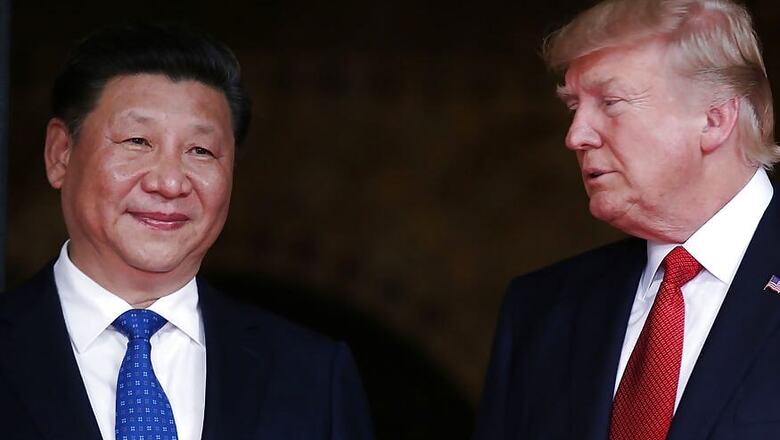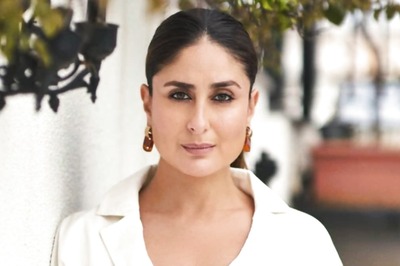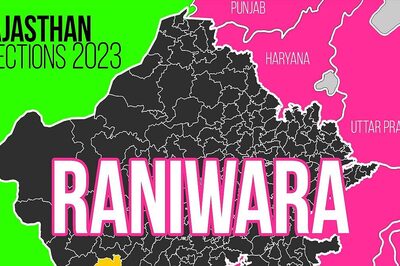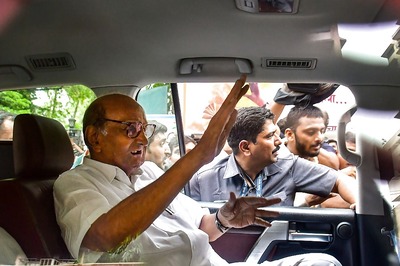
views
China has reacted sharply to the United States seeking a discussion in the UN Security Council on the new security legislation for Hong Kong, with the Chinese ambassador to the United Nations Zhang Jun saying, “China categorically rejects the baseless request of the US for a Security Council meeting. Legislation on national security for Hong Kong is purely China’s internal affairs.”
Russia came in support of China with its envoy to UN, Dimitry Polyanskiy, tweeting to say: “We never discuss internal matters of member-states. It’s like opening a Pandora’s Box and could make damage for US itself.”
Meanwhile, US secretary of State Mike Pompeo dialled another P5 member, UK, to speak to his counterpart Dominic Raab. According to the US press statement, they both agreed that “the international community must support the people of Hong Kong and respond to Beijing’s continued erosions of Hong Kong’s autonomy”.
The handover of Hong Kong from Britain to China happened in 1997 after a 156-year colonial rule under the Sino-British Joint Declaration that ensured autonomy for Hong Kong under the One Country, Two Systems rule between China and HKSAR.
On the other hand, escalating the already raging war of words, Jun called the US “troublemaker of the world” using “power politics and bullying practices”.
Interestingly, this heightened US versus China narrative emerged the same day US President Donald Trump tweeted to say that the US “has informed both India and China that it is ready, willing and able to mediate or arbitrate their now raging border dispute”. There was no response from the Indian or Chinese side till the filing of this report as to which leader or official on either side was “informed” about America’s offer or what the two countries’ stand on mediation is.
Former diplomat Rajiv Dogra explained to News18 that it would be near impossible for India to accept such an offer due to the implications it could have. He said, “As a principle, if you accept one mediation/arbitration offer, how do you refuse another?” Since last year, Trump has made repeated offers to mediate between India and Pakistan over Kashmir that have been categorically rejected by India.
Ambassador Dogra also pointed out that arbitration or mediation would make India enter unchartered waters and that could be quite troublesome.
India and China have a mechanism on ground to diffuse situations on the LAC. The Working Mechanism for Consultation and Coordination on India China Border Affairs (WMCC) is an institutional mechanism in place for maintaining peace and tranquility on the border by ensuring status quo on the Line of Actual Control.
Along with this, during the two informal summits between Prime Minister Narendra Modi and President Xi Jinping in Wuhan and Mahaballipuram, it was stressed that difference should not be allowed to become dispute. In the Mahaballipuram summit last year in October, it was decided that the leaders of the two countries will direct their militaries to undertake more Confidence Building Measures.
However, for three weeks, skirmishes broke out on the LAC at different points and the situation could not be diffused despite the mechanism in place. India initially dismissed the events as those arising out of a “difference in perception of the LAC”. But last week, the Ministry of External Affairs finally admitted to the situation, saying China was “hindering India’s normal patrolling patterns”.
There were two statements from the Chinese side that had indicated that Beijing is looking at de-escalation. The Chinese Foreign Ministry Spokesperson Lijian Zhao called the situation on the LAC “overall stable and controllable”. The Chinese Ambassador to India, Sun Weidong, also said at a webinar with Indian youth: “We should not let differences overshadow our relations. We should resolve differences through communication.” However, reports suggested that there has been no retreat by Chinese forces on the ground yet at the LAC.




















Comments
0 comment